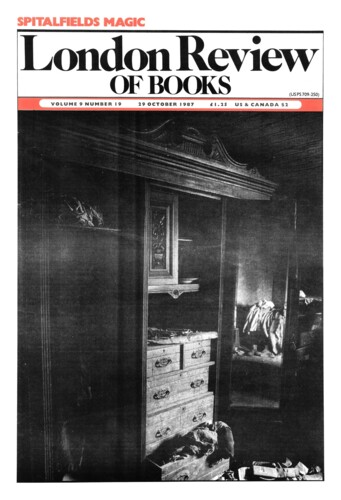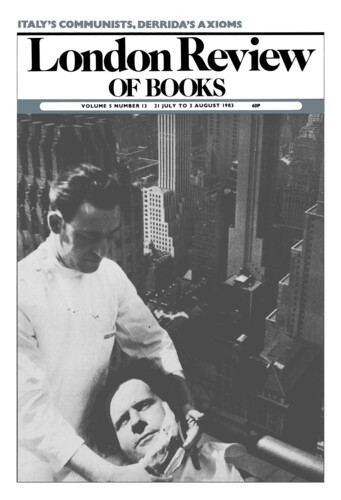Verdi’s Views
John Rosselli, 29 October 1987
Few creative artists have moved forward on as broad a front as Verdi has in the past half-century. Just before the Second World War he remained, for the public at large, the composer of three or four indestructibly popular operas; for highbrows, the late-maturing author of Otello and Falstaff. There had been, since the late Twenties, a Verdi ‘renaissance’, limited in scope and audience. A clever music student still winced automatically at the sound of a tune from La Traviata. Even Dyneley Hussey’s 1940 volume in the ‘Master Musicians’ series, a work inspired by the (mainly German-led) ‘renaissance’, showed how many of the operas were out of currency. Some of them Hussey cannot have heard: if he had, he would scarcely have pronounced I Due Foscari ‘dead past revival’. Others like Don Carlos were still in eclipse as stage works, though admired by musicians.


